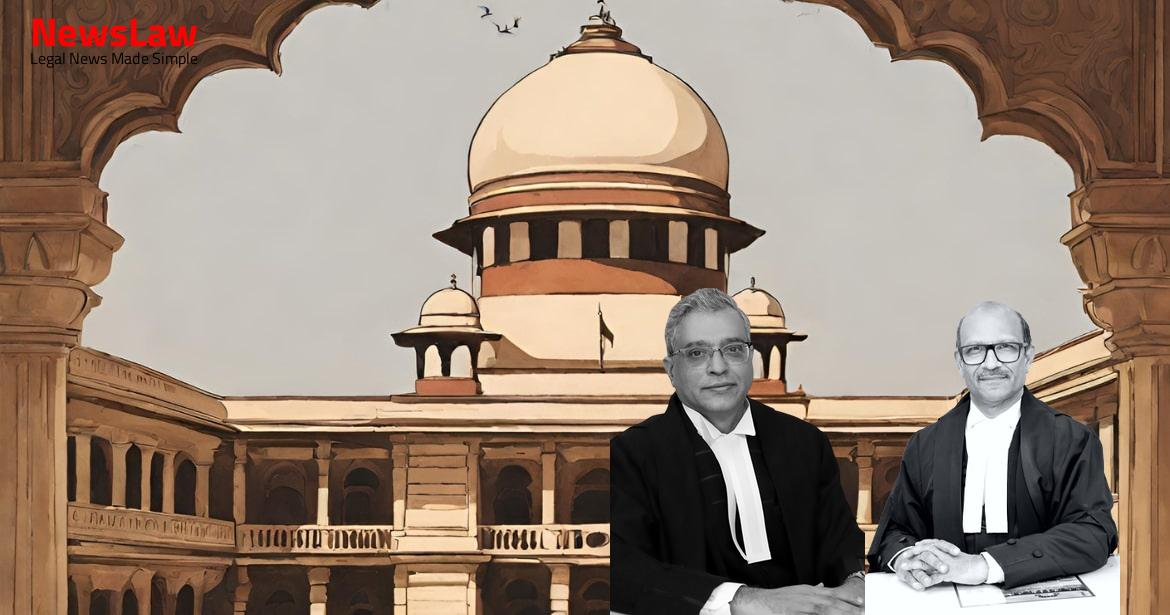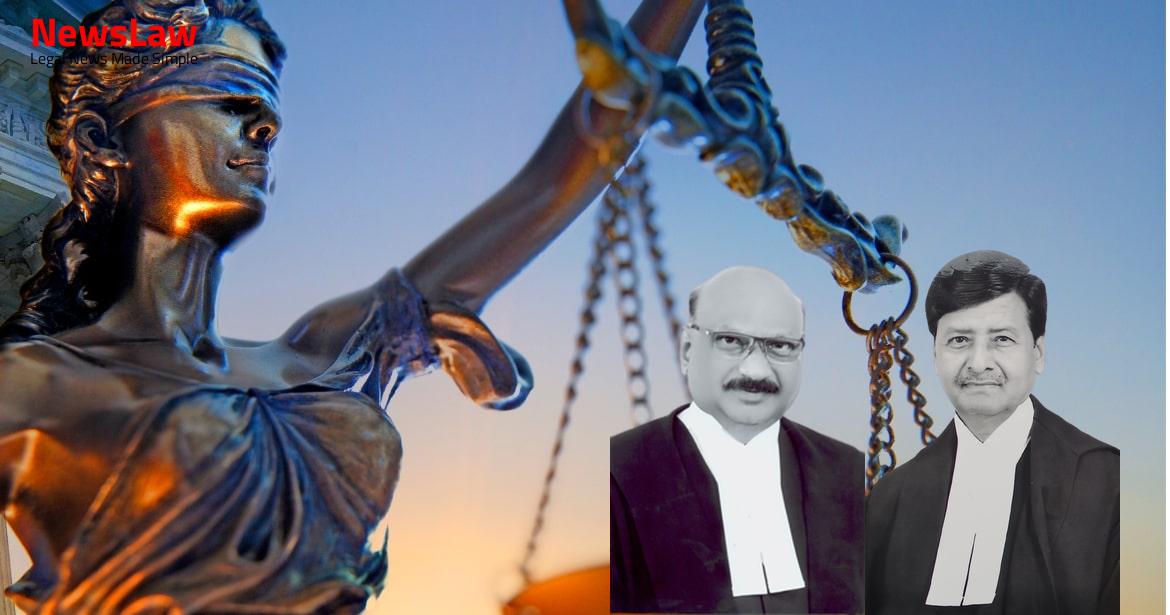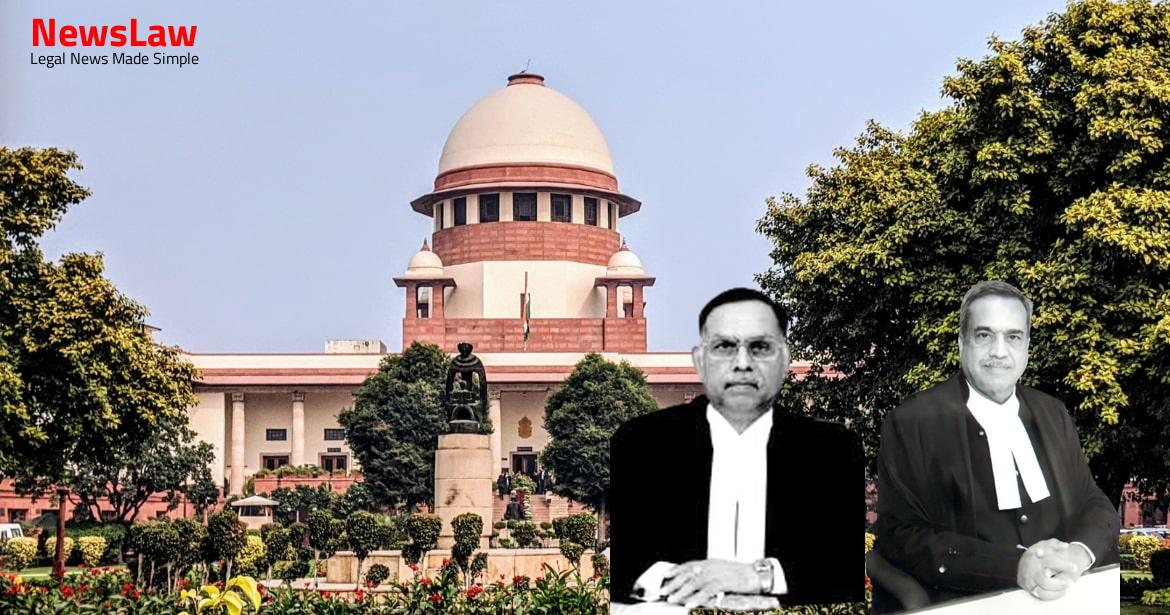In a recent landmark case before the Supreme Court of India, the analysis of the sealed cover procedure in a government servant promotion case was thoroughly examined. The judgment delves into the nuances of when the sealed cover procedure can be applied and the implications of pending criminal charges on promotion considerations. Stay tuned for a detailed look into this significant legal development.
Facts
- An FIR was registered against the respondent on 31 December, 2001, for offenses under IPC and Prevention of Corruption Act.
- Sanction for prosecution was accorded by CBDT on 2 June, 2006.
- The respondent’s eligibility for promotion was considered despite the pending criminal charges.
- The DPC was convened on 22 February, 2007, to consider promotion to Commissioner of Income Tax.
- The respondent had received promotions to various posts prior to this case.
- Vigilance clearance was withheld and recommendations for promotion were sealed due to the pending criminal case.
- The Central Administrative Tribunal directed reconsideration of the respondent’s case within two months.
- A communication dated 15 September, 2011, rejected the promotion citing no justification for opening the sealed cover.
- The Tribunal allowed Original Application No 3716 of 2011, challenging the denial of promotional benefits.
- The High Court upheld the Tribunal’s decision, leading to the appeal by the Union of India.
Also Read: High Court of Madhya Pradesh Reverses Judgment on Charges against Accused in Assault Case
Arguments
- Petitioner’s counsel argued that the department was justified in using the sealed cover procedure for promotion consideration due to pending criminal charges and delayed sanction.
- The definition of ‘pending judicial proceedings’ in the CCS(Pension) Rules was highlighted to determine the start of criminal prosecution proceedings.
- The O.M. dated September 14, 1992, was referred to regarding promotion guidelines for cases with ongoing disciplinary or court proceedings.
- The counsel emphasized the importance of sanction for prosecution in criminal cases as a crucial event in the legal process.
- The interpretation of ‘prosecution for criminal charge pending’ was discussed in the context of the sealed cover procedure for promotion evaluation.
- ARG_RESPONDENT urged that the impugned judgment does not have any errors and requested the court to dismiss the appeal.
- He argued that just receiving sanction does not mean that criminal charges are pending against a government servant.
Also Read: Joint Liability and Common Intention: Supreme Court Verdict
Analysis
- Cases of Government Servants for whom Sealed Cover Procedure will be applicable during promotion consideration are specified.
- This includes government servants under suspension, those facing pending disciplinary proceedings, or undergoing prosecution for a criminal charge.
- Also, the procedure applies to cases of government servants under investigation for serious allegations of corruption, bribery, or similar grave misconduct by CBI or any other agency.
- The judgement analyzes the provisions regarding the ‘sealed cover’ procedure as per the OM dated 2 November, 2012.
- It highlights that the sealed cover procedure can only be adopted after the issuance of a charge memo/charge sheet or when the officer is placed under suspension.
- The key question raised is whether mere grant of prosecution sanction can be considered as pending prosecution for a criminal charge against the government servant.
- The contention regarding delay in collecting evidence for issuing charge-memos not justifies keeping DPC recommendations in a sealed cover.
- The OM dated 14 September, 1992 outlines three categories of government servants eligible for the sealed cover procedure, which includes those with pending criminal charges.
- The analysis emphasizes that the sealed cover procedure should only be used after the issuance of a charge memo/charge sheet, and not during preliminary investigations.
- The conclusion aligns with the Tribunal’s view that the prosecution for criminal charges was not pending against the government servant during the DPC meeting.
- Sealed cover procedure should only be used after the issuance of a charge memo/charge sheet.
- The disciplinary or criminal proceedings are considered to have commenced only after the issuance of a charge memo in a disciplinary proceedings or a charge sheet in a criminal prosecution.
- Initiation of departmental proceedings or criminal prosecution against the employee is when a charge memo or charge sheet is issued.
- The High Court’s judgment dated 26 April, 2013 was based on thorough consideration of facts and law.
- The judgment does not require any intervention as it correctly analyzed the situation.
- The DPC assessed the individual to be ‘FIT’ for promotion according to the letter.
Also Read: Land Dispute: Decree Quashed by the Supreme Court of India
Decision
- The appeal lacks merit and is dismissed.
- Consequential steps should be taken based on the recommendations provided in the judgment.
- Any pending application(s) shall be considered disposed of.
Case Title: UNION OF INDIA Vs. SHRI DOLY LOYI (2024 INSC 729)
Case Number: C.A. No.-008387-008387 – 2013



